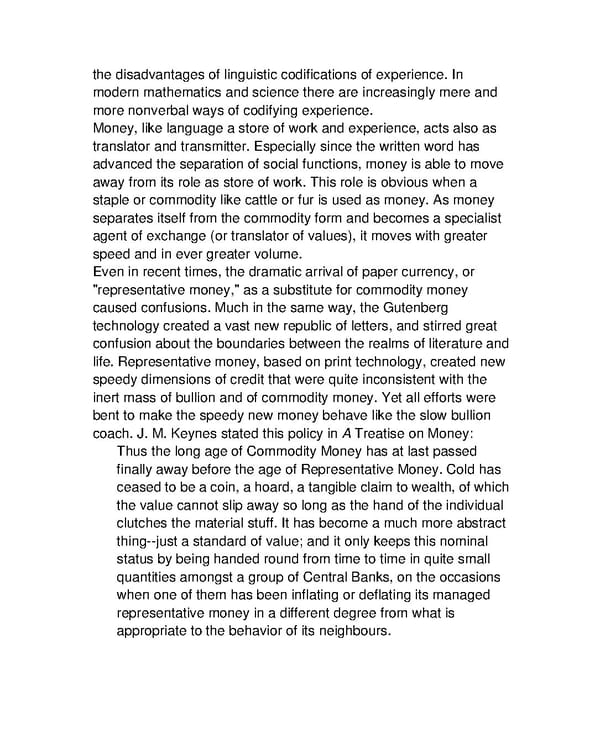the disadvantages of linguistic codifications of experience. In modern mathematics and science there are increasingly mere and more nonverbal ways of codifying experience. Money, like language a store of work and experience, acts also as translator and transmitter. Especially since the written word has advanced the separation of social functions, money is able to move away from its role as store of work. This role is obvious when a staple or commodity like cattle or fur is used as money. As money separates itself from the commodity form and becomes a specialist agent of exchange (or translator of values), it moves with greater speed and in ever greater volume. Even in recent times, the dramatic arrival of paper currency, or "representative money," as a substitute for commodity money caused confusions. Much in the same way, the Gutenberg technology created a vast new republic of letters, and stirred great confusion about the boundaries between the realms of literature and life. Representative money, based on print technology, created new speedy dimensions of credit that were quite inconsistent with the inert mass of bullion and of commodity money. Yet all efforts were bent to make the speedy new money behave like the slow bullion coach. J. M. Keynes stated this policy in A Treatise on Money: Thus the long age of Commodity Money has at last passed finally away before the age of Representative Money. Cold has ceased to be a coin, a hoard, a tangible claim to wealth, of which the value cannot slip away so long as the hand of the individual clutches the material stuff. It has become a much more abstract thing--just a standard of value; and it only keeps this nominal status by being handed round from time to time in quite small quantities amongst a group of Central Banks, on the occasions when one of them has been inflating or deflating its managed representative money in a different degree from what is appropriate to the behavior of its neighbours.
 Understanding Media by Marshall McLuhan Page 156 Page 158
Understanding Media by Marshall McLuhan Page 156 Page 158